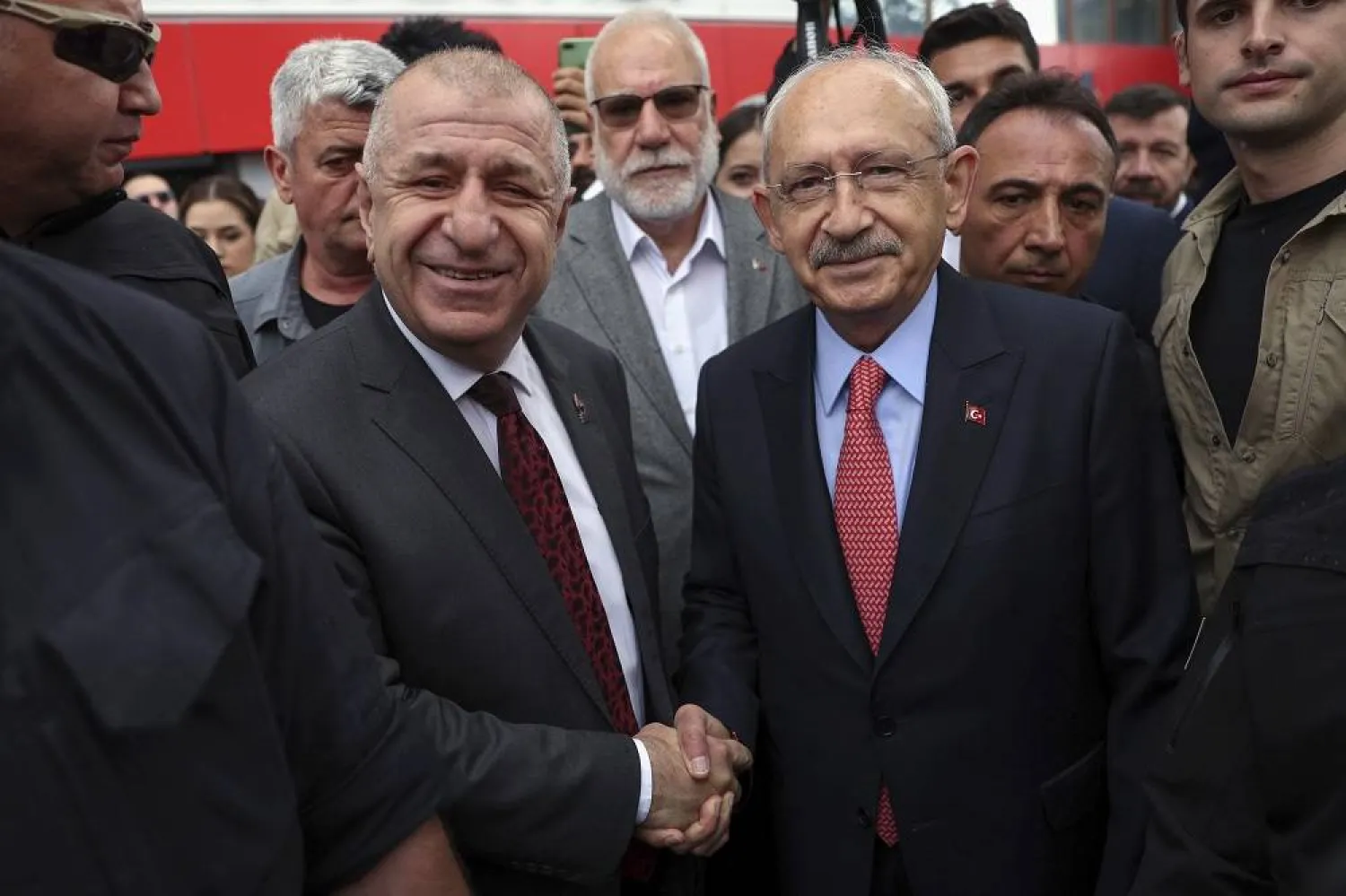A hard-line, anti-migrant party on Wednesday threw its weight behind the opposition candidate who is running against Turkish President Recep Tayyip Erdogan in this weekend’s runoff presidential race.
Umit Ozdag, the leader of the far-right Victory Party, announced his support for main opposition party leader Kemal Kilicdaroglu, who will be facing off against Erdogan on Sunday. He said he decided to back Kilicdaroglu after the two reached a consensus on the need to repatriate millions of migrants within a year.
Kilicdaroglu "has stated very clearly that refugees should return to their homeland and that this is the policy he will implement," Ozdag told reporters following several rounds of talks with Kilicdaroglu. "Therefore, as the Victory Party, we decided to support Mr. Kilicdaroglu in the second round of the presidential election."
Ozdag added that the two agreed on "a model that is in line with international laws and upholds human rights, that would ensure the security of Syrians in Syria but lift the heavy burden on Türkiye's economy and that would make our streets safe again."
Ozdag’s announcement came just days after Sinan Ogan, the third-placed contender in the first round of the presidential election on May 14, endorsed Erdogan in the upcoming runoff. Ogan was the joint candidate of an alliance of small conservative parties, led by Ozdag’s Victory Party.
According to a seven-point protocol signed between Kilicdaroglu and Ozdag, the two also agreed on the need to maintain an "effective and determined" fight against the outlawed Kurdistan Workers' Party, or PKK, and other groups that Türkiye considers to be terrorists. The two said they would uphold the country's secular traditions and fight corruption.
Erdogan received 49.5% of the votes in the first round of the presidential race — just short of the majority needed for an outright victory — compared to Kilicdaroglu’s 44.9%. Ogan received 5.2%.
Erdogan's ruling party and its nationalist and Islamist allies also retained a majority in the 600-seat parliament — a development that increases Erdogan’s chances of reelection because voters are likely to vote for him to avoid a splintered government, analysts say.
In an apparent attempt to woo nationalist voters in the runoff, Kilicdaroglu had hardened his tone last week, vowing to send back refugees and ruling out any peace negotiations with Kurdish militants if he is elected. Kilicdaroglu had previously said he planned to repatriate Syrians within two years, by creating economic and safety conditions conducive to their return.
Kilicdaroglu, 74, is the joint candidate of a six-party opposition alliance, which has pledged to reverse Türkiye’s authoritarian drift under Erdogan and return the country to a parliamentary democracy with increased checks and balances.
Türkiye is home to the world’s largest refugee community, including 3.7 million Syrians. Anti-migrant sentiment is running high in the country amid economic turmoil, including high inflation, and the issue of the repatriation of migrants has become a main campaign issue.









